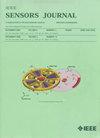Adaptive Scheduling With Cell Borrowing for 6TiSCH Networks
IF 4.3
2区 综合性期刊
Q1 ENGINEERING, ELECTRICAL & ELECTRONIC
引用次数: 0
Abstract
Low-power wireless networks are a key technology in industrial IoT (IIoT), where the rapid increase in connected devices necessitates solutions to enhance maximum traffic throughput. IPv6 over the time-slotted channel hopping (TSCH) mode of IEEE 802.15.4e (6TiSCH) networks, based on the IEEE 802.15.4 time-slotted channel hopping (TSCH) MAC mode, provides high reliability and energy efficiency. However, the default scheduling function (SF) in 6TiSCH, the minimal SF (MSF), suffers from overprovisioning issues, leading to inefficient timeslot utilization and traffic throughput limitations in high-density, high-traffic network environments. To address these challenges, we propose adaptive scheduling with cell borrowing for improving traffic throughput in dense 6TiSCH networks (ASCBT). ASCBT introduces three mechanisms that allow sibling nodes to borrow and utilize overprovisioned cells, reducing timeslot resource waste and improving the network’s maximum traffic throughput. Additionally, it effectively adapts to fluctuating traffic conditions. Performance evaluations in high-traffic scenarios show that ASCBT achieves up to 20.2% higher packet delivery ratio (PDR) and 23.8% lower end-to-end latency compared to MSF under constant-rate and burst traffic scenarios. These results indicate that ASCBT effectively enhances traffic handling capacity and network stability in large-scale TSCH-based IIoT networks.基于小区借用的6TiSCH网络自适应调度
低功耗无线网络是工业物联网(IIoT)的一项关键技术,在工业物联网中,连接设备的快速增加需要提高最大流量吞吐量的解决方案。IPv6基于IEEE 802.15.4 TSCH (time-slotted channel hopping) MAC模式,基于IEEE 802.15.4 TSCH (time-slotted channel hopping) MAC模式,采用IEEE 802.15.4e (6TiSCH)网络的TSCH (time-slotted channel hopping)模式,提供了高可靠性和高能效。然而,6TiSCH中的默认调度功能(SF),即最小调度功能(MSF),存在过度分配问题,导致在高密度、高流量的网络环境中,时隙利用率低下和流量吞吐量限制。为了解决这些挑战,我们提出了使用小区借用的自适应调度来提高密集6TiSCH网络(ASCBT)的流量吞吐量。ASCBT引入了三种机制,允许兄弟节点借用和利用过度配置的单元,减少时隙资源浪费并提高网络的最大流量吞吐量。此外,它还能有效地适应多变的交通状况。在高流量场景下的性能评估表明,在恒速率和突发流量场景下,ASCBT比MSF的PDR (packet delivery ratio)提高20.2%,端到端延迟降低23.8%。这些结果表明,ASCBT有效地增强了基于tsch的大规模工业物联网网络的流量处理能力和网络稳定性。
本文章由计算机程序翻译,如有差异,请以英文原文为准。
求助全文
约1分钟内获得全文
求助全文
来源期刊

IEEE Sensors Journal
工程技术-工程:电子与电气
CiteScore
7.70
自引率
14.00%
发文量
2058
审稿时长
5.2 months
期刊介绍:
The fields of interest of the IEEE Sensors Journal are the theory, design , fabrication, manufacturing and applications of devices for sensing and transducing physical, chemical and biological phenomena, with emphasis on the electronics and physics aspect of sensors and integrated sensors-actuators. IEEE Sensors Journal deals with the following:
-Sensor Phenomenology, Modelling, and Evaluation
-Sensor Materials, Processing, and Fabrication
-Chemical and Gas Sensors
-Microfluidics and Biosensors
-Optical Sensors
-Physical Sensors: Temperature, Mechanical, Magnetic, and others
-Acoustic and Ultrasonic Sensors
-Sensor Packaging
-Sensor Networks
-Sensor Applications
-Sensor Systems: Signals, Processing, and Interfaces
-Actuators and Sensor Power Systems
-Sensor Signal Processing for high precision and stability (amplification, filtering, linearization, modulation/demodulation) and under harsh conditions (EMC, radiation, humidity, temperature); energy consumption/harvesting
-Sensor Data Processing (soft computing with sensor data, e.g., pattern recognition, machine learning, evolutionary computation; sensor data fusion, processing of wave e.g., electromagnetic and acoustic; and non-wave, e.g., chemical, gravity, particle, thermal, radiative and non-radiative sensor data, detection, estimation and classification based on sensor data)
-Sensors in Industrial Practice
 求助内容:
求助内容: 应助结果提醒方式:
应助结果提醒方式:


